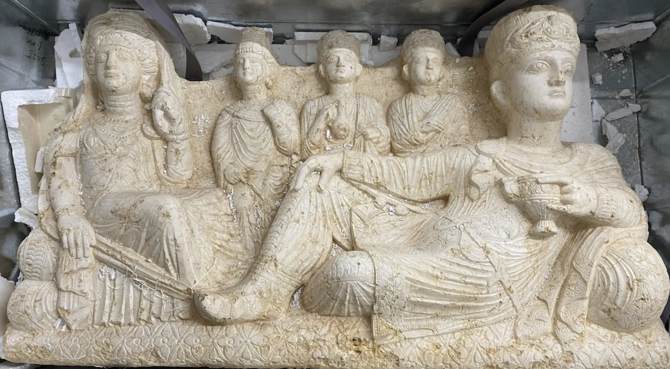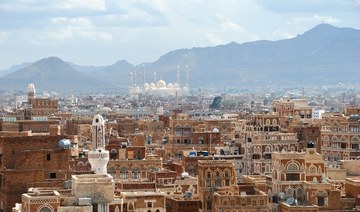LONDON: An antiques dealer from Lebanon has been accused of smuggling looted artifacts worth millions of dollars into the US.
Georges Lofti, 81, who previously assisted the Antiquities Trafficking Unit in exposing an Egyptian golden coffin on display at the Metropolitan Museum of Art as having been looted during unrest in Egypt in 2011, is also accused by law enforcement agents of using the agency to give stolen items a “sheen of legitimacy,” The Times reported.
Lofti sold and lent items to the museum and kept other artifacts in an apartment located across the road, the report added.
He often invited ATU agents to his storage space, believing that they would not suspect the antiquities kept inside were stolen, according to a report by The New York Times.
The ATU were granted an arrest warrant for Lotfi this week on suspicion of stealing 24 items and tricking investigators into giving the artifacts a stamp of approval.
According to legal documents attached to the warrant, ATU security agent Robert Mancene confirmed that Lotfi tipped them off regarding the gold Coffin of Nedjemankh, which the museum bought for $4 million in 2017 and put on display. Following Lofti's tipoff, the coffin was returned in 2019.
“Over the years (Lotfi) has provided me with detailed information about looting practices globally,” Mancene said. The dealer, described by Mancene as “a valuable source of information,” also passed on details about global looters and traffickers, according to the report.
One of the stolen items Lofti is accused of smuggling into the US is the “Palmyra Stone” — a limestone sculpture from Syria depicting a couple with three children worth an estimated $750,000 — which investigators said Lofti did not purchase from a dealer in 1982 as he had claimed, but instead obtained from a smuggler in 2010 or 2011.
Several mosaics, one valued at $2.5 million and another at $500,000, were also among the items Lofti is alleged to have looted.
Lofti, who said that he was shocked by the allegations and denies any wrongdoing, told The New York Times: “I was fighting with them for 10 years to stop illicit trading and they turned against me.”













